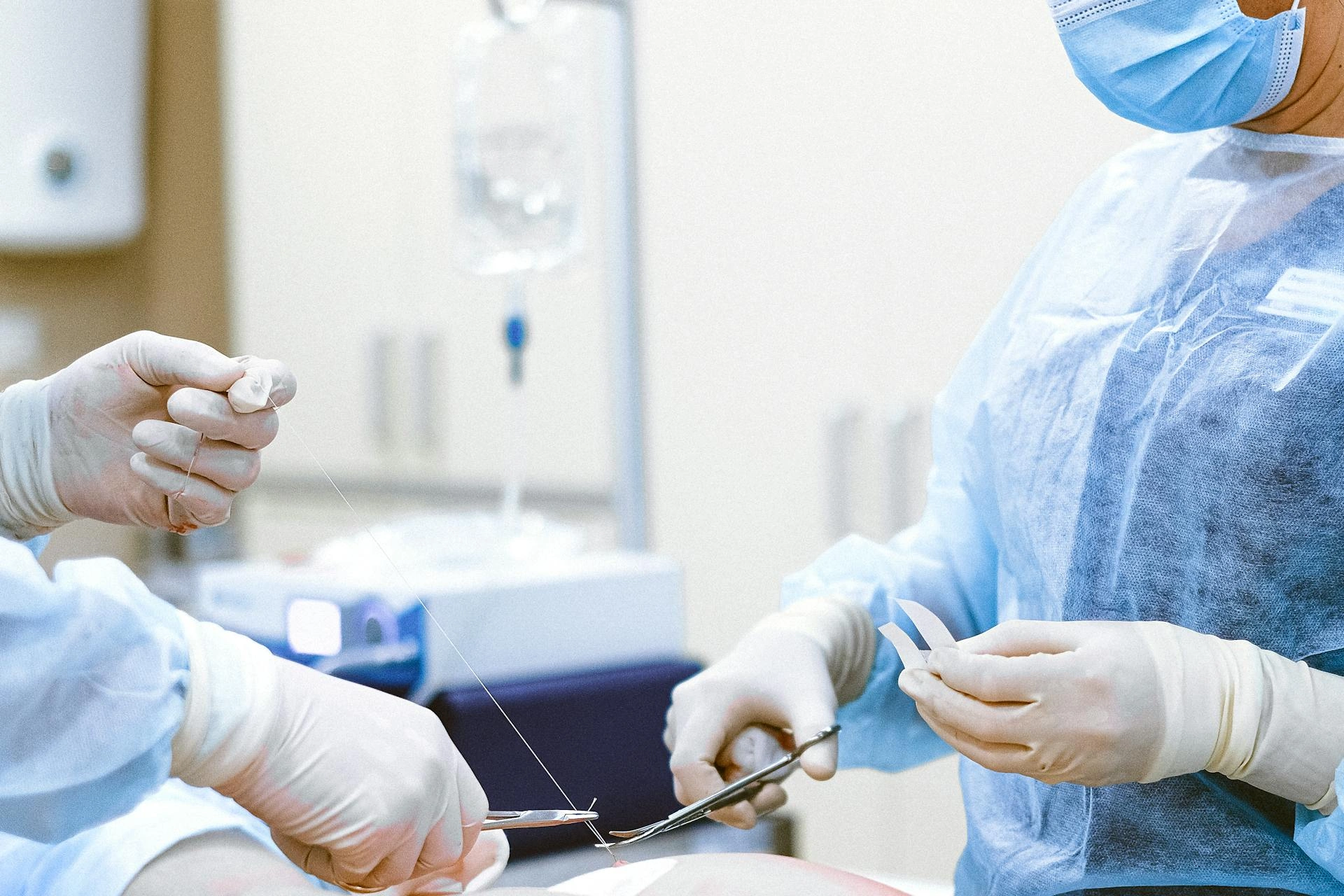COVID-19: Business risks are being seen under a new spotlight

John E. Kaye
- Published
- Executive Education, Home, Technology

As coronavirus continues to disrupt the corporate landscape, a new survey suggests businesses across the UK, Ireland and the rest of Europe have significantly shifted their attitudes towards risk. The Chartered IIA’s annual Risk in Focus 2021 report, published today, tracks the risks facing organisations year-on-year as ranked by 579 Chief Audit Executives (CAEs).
For the third year running, cybersecurity has topped the list of risks, with almost four in five (79%) businesses citing it as one of the major risks they face. More than a quarter (27%) singled cybersecurity out as the number one risk, amid a heightened awareness of the IT and security threats posed by widespread remote working, including an increase in phishing attempts and malware infections.
The report also points to ongoing concerns around companies’ ability to remain solvent as the world enters a recession. Amid depressed demand, financial, capital and liquidity risks have jumped up the agenda, with more than two in five (42%) of those surveyed including these within their top five risks – a 40% increase on last year.
Other key findings from Risk in Focus 2021 include the following:
- Disasters and crisis preparedness was cited as a top five risk by over a third of CAEs (34%), this was a new risk included for the first time in this year’s survey and reflects the increased focus on crisis management and business resilience as a result of the coronavirus.
- Bribery, fraud and other financial crime was cited by 25% of CAEs as a top five risk, a notable 19% increase on the 21% who said that same a year ago.
- Managing talent, staff wellbeing and diversity challenges has risen up the agenda, with more than one in three (35%) citing ‘Human capital and talent management’ as a top five risk, compared with around one in four (27%) who said the same a year ago.
- Health and safety saw a 70% year-on-year increase in the numbers of businesses citing it as a priority. Almost one in five participants (17%) said it was a top five risk, compared with only 10% a year ago.
- 22% of CAEs cited ‘Climate change and environmental sustainability’ as one of their company’s top five risks, a more than 50% increase on the 14% who said the same in last year’s Risk in Focus survey. Growing awareness of environmental concerns, highlighted nearly half of audit chiefs (41%) saying they expect it to be a priority risk three years from now. But despite this, only 6% of audit chiefs citing climate change as one of the top areas to spend time and effort on.
- With growing uncertainty on whether the UK can agree a trade deal with the EU following Brexit, 33% of CAEs said that ‘Macroeconomic and geopolitical uncertainty’ was a top five risk, an increase on the 29% who said the same a year ago.
John Wood, Chief Executive of the Chartered IIA commented:
“Businesses are operating in extraordinary times and have had to adapt to new challenges this year like never before. Coronavirus has exacerbated existing risks, forcing organisations to think from completely new angles or assign new levels of priority to them.
Cybersecurity is a case in point. Though a perennial front-of-mind risk for boards, the rise in remote working means cybersecurity issues have taken on a new dimension and IT infrastructure has had to adapt in record time.
“The longer-term implications of this exceptional scenario are still unclear, but we should expect disruption to continue into next year and beyond. Internal audit can and should help organisations manage these new challenges by identifying their blind spots and opportunities to improve their operations.”
Risk in Focus 2021 sets out a series of recommendations for how organisations can tackle these risks including:
- Protect against cybersecurity threats by introducing new IT protocols suited to the remote working environment, ensuring workers know how to spot cybercrime and avoid succumbing to phishing and spear phishing.
- Address short-term financial risks via holistic assessment of enterprise-level operations (such as manufacturing, sales, advertising and marketing activities) to reveal areas to significantly improve efficiencies by driving up revenue and bringing down costs.
- Work with internal audit function to analyse business operations for gaps and inefficiencies that can be closed to deliver savings – as well as the knock-on effects and disruptive costs of any restructuring programme.
The full report is available below.
For more information visit: www.iia.org.uk
For more Technology and Executive Education follow The European Magazine
Follow us on
RECENT ARTICLES
-
 Deepfake celebrity ads drive new wave of investment scams
Deepfake celebrity ads drive new wave of investment scams -
 Europe eyes Australia-style social media crackdown for children
Europe eyes Australia-style social media crackdown for children -
 Europe opens NanoIC pilot line to design the computer chips of the 2030s
Europe opens NanoIC pilot line to design the computer chips of the 2030s -
 Building the materials of tomorrow one atom at a time: fiction or reality?
Building the materials of tomorrow one atom at a time: fiction or reality? -
 Universe ‘should be thicker than this’, say scientists after biggest sky survey ever
Universe ‘should be thicker than this’, say scientists after biggest sky survey ever -
 Lasers finally unlock mystery of Charles Darwin’s specimen jars
Lasers finally unlock mystery of Charles Darwin’s specimen jars -
 Women, science and the price of integrity
Women, science and the price of integrity -
 Meet the AI-powered robot that can sort, load and run your laundry on its own
Meet the AI-powered robot that can sort, load and run your laundry on its own -
 UK organisations still falling short on GDPR compliance, benchmark report finds
UK organisations still falling short on GDPR compliance, benchmark report finds -
 A practical playbook for securing mission-critical information
A practical playbook for securing mission-critical information -
 Cracking open the black box: why AI-powered cybersecurity still needs human eyes
Cracking open the black box: why AI-powered cybersecurity still needs human eyes -
 Tech addiction: the hidden cybersecurity threat
Tech addiction: the hidden cybersecurity threat -
 Parliament invites cyber experts to give evidence on new UK cyber security bill
Parliament invites cyber experts to give evidence on new UK cyber security bill -
 ISF warns geopolitics will be the defining cybersecurity risk of 2026
ISF warns geopolitics will be the defining cybersecurity risk of 2026 -
 AI boom triggers new wave of data-centre investment across Europe
AI boom triggers new wave of data-centre investment across Europe -
 Make boards legally liable for cyber attacks, security chief warns
Make boards legally liable for cyber attacks, security chief warns -
 AI innovation linked to a shrinking share of income for European workers
AI innovation linked to a shrinking share of income for European workers -
 Europe emphasises AI governance as North America moves faster towards autonomy, Digitate research shows
Europe emphasises AI governance as North America moves faster towards autonomy, Digitate research shows -
 Surgeons just changed medicine forever using hotel internet connection
Surgeons just changed medicine forever using hotel internet connection -
 Curium’s expansion into transformative therapy offers fresh hope against cancer
Curium’s expansion into transformative therapy offers fresh hope against cancer -
 What to consider before going all in on AI-driven email security
What to consider before going all in on AI-driven email security -
 GrayMatter Robotics opens 100,000-sq-ft AI robotics innovation centre in California
GrayMatter Robotics opens 100,000-sq-ft AI robotics innovation centre in California -
 The silent deal-killer: why cyber due diligence is non-negotiable in M&As
The silent deal-killer: why cyber due diligence is non-negotiable in M&As -
 South African students develop tech concept to tackle hunger using AI and blockchain
South African students develop tech concept to tackle hunger using AI and blockchain -
 Automation breakthrough reduces ambulance delays and saves NHS £800,000 a year
Automation breakthrough reduces ambulance delays and saves NHS £800,000 a year



























